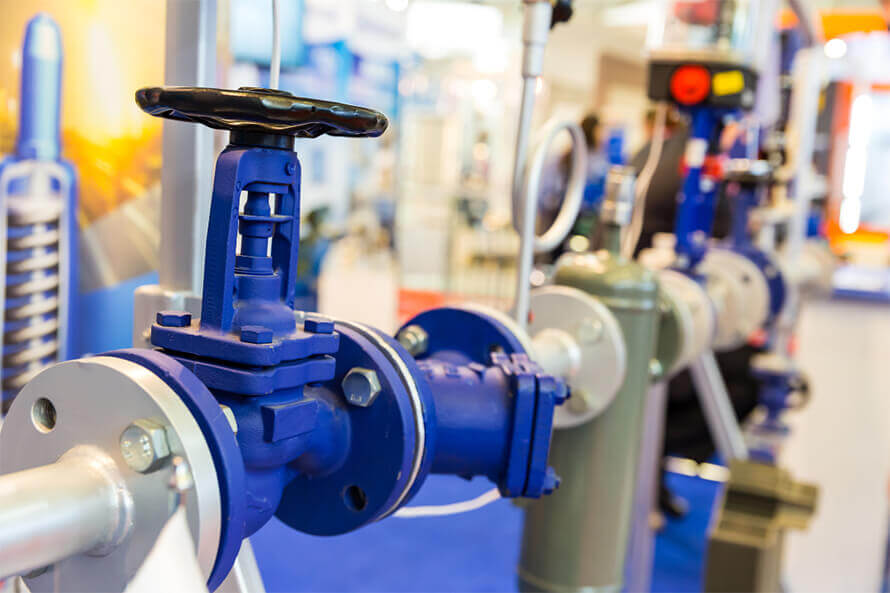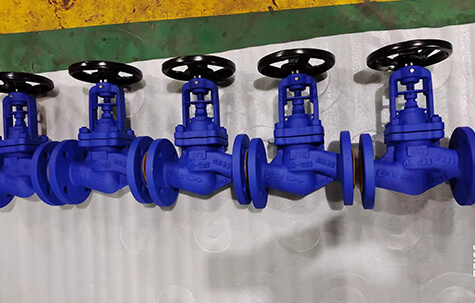Case
Home / Case / Experience / Why use bellows seal globe valve for heat transfer oil?

Case

Heat transfer oil can be used in a wider temperature range to meet the process requirements for heating and cooling at different temperatures, or the same heat transfer oil can be used in the same system to achieve both high temperature heating and low temperature cooling - i.e. to reduce the complexity of the system and operation.
As a result, heat transfer oil heating systems are widely used in the chemical fibre and materials industries.

1. High operating temperatures can be obtained under almost atmospheric pressure - i.e. the operating pressure and safety requirements of high temperature heating systems can be greatly reduced, increasing the reliability of the system and equipment.
2. Heat-conducting oil heating systems omit water treatment systems and equipment, improving the thermal efficiency of the system and reducing the maintenance workload of equipment and pipelines - i.e. the initial investment and operating costs of the heating system can be reduced .
1. heat-conducting oil in the process of use due to local overheating of the heating system, prone to thermal cracking reaction, generating volatile and lower flash point oligomers, polymerisation reaction between oligomers to generate non-melting insoluble polymers, not only impede the flow of oil, reduce the efficiency of heat transfer of the same shape, while it will cause the possibility of local overheating deformation of the pipeline blowing up.
2. heat transfer oil and dissolved air and heat carrier system filling, is the residual air in the case of heat oxidation reaction, the generation of organic acids and colloidal substances adhere to the oil pipeline, not only affect the service life of the heat transfer medium, blocking the pipeline, while easy to cause acid corrosion of the pipeline, increasing the risk of system operation leakage.
The categories of accidents in heat transfer oil heating systems include:
Insulation fire, expansion tank exhaust port and insulation fire, heat transfer oil system operation area fire, heat transfer oil storage tank fire and explosion, heat transfer oil heat exchanger or reactor (kettle) fire and explosion, furnace explosion, etc. It can be seen that many common accidents with thermal oil heating systems are more or less related to leaks.
At the pipeline of the thermal oil system, except for the equipment interface, instrument interface or valve, etc., which must be connected by flange, the rest of the interface is welded connection. At the flange connection, the flange should be set groove surface, and the nominal pressure should not be less than 1.6MPa, for the heat-conducting oil with temperature higher than 300 degrees, the nominal pressure of the flange should not be less than 2.5MPa.


1.Flanges should be selected in the form of butt welding instead of flat welding.
The flange gasket of the hot oil system shall not be allowed to use asbestos rubber sheet, but shall use metal winding gasket or expanded graphite composite gasket. The hot oil system should be equipped with a safety valve, and the safety valve should be a bellows sealed safety valve.
2.No cast iron or non-ferrous metal shall be used for the valve material of the hot oil system.
Considering its low pressure, high temperature and particularly strong permeability characteristics, in accordance with standard technical design specifications, bellows-sealed globe valves should be used for shut-off valves in hot oil pipelines, bellows-sealed sleeve regulating valves should be used for regulating valves and fully-opening bellows-sealed safety valves should be used for safety valves.
Due to the characteristics of the oxidation stability of the thermal oil, the leakage of the thermal oil valve will not only cause the combustion of the insulation or equipment combustion and explosion, but also cause the thermal oil and dissolved in the air in the case of heat oxidation reaction, the generation of organic acid corrosion valve internals.
So the hot oil valve should not only be free of internal leakage, but also free of external leakage.
Heat-conducting oil is very viscous in the cold state and has a high flow resistance. The valve spool is of the quick-open type, which can increase the flow rate when starting and overcome the flow resistance well.
Therefore, in order to ensure the stability of production, but also in order to reduce the actual operating costs, the heat-conducting oil system should be used fast-opening spool bellows-sealed globe valves, not filler-sealed globe valves or general-purpose valves.